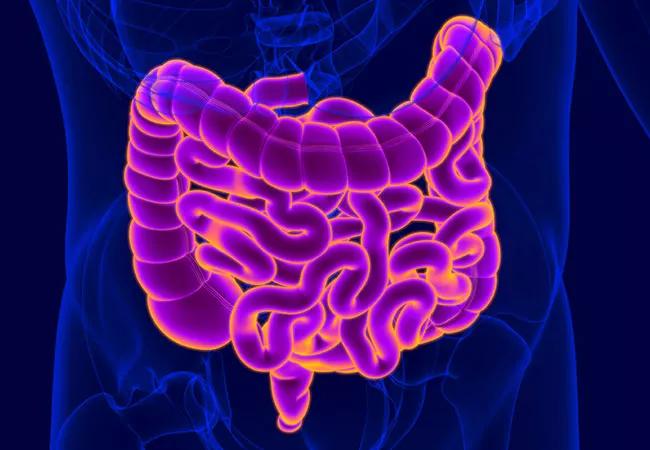Study to test efficacy of immunotherapy with chemotherapy and radiation

Researchers at the Taussig Cancer Center at Cleveland Clinic are enrolling patients in a clinical trial to evaluate whether the PD-1 receptor pembrolizumab (KEYTRUDA®) in combination with standard chemotherapy and radiation can improve outcomes over the standard of care for patients with MSI-high rectal cancer. The study uses a similar immunotherapy to one investigated in a recent clinical trial at Memorial Sloan Kettering Cancer Center in which all 14 patients achieved remission.
Advertisement
Cleveland Clinic is a non-profit academic medical center. Advertising on our site helps support our mission. We do not endorse non-Cleveland Clinic products or services. Policy
In the Memorial Sloan Kettering trial, patients received an infusion of the immunotherapy dostarlimab (JEMPERLI) every three weeks for six months. The results were remarkable, with all patients becoming clear of disease at a 12-month follow-up. Though it is not yet clear whether this will result in long-term disappearance of tumors, the results are bringing hope for improving both the prognosis and the quality of life of patients with MSI-high rectal cancer.
Since chemotherapy and radiation have proven effective to prevent reoccurrence of rectal cancer, Cleveland Clinic is investigating whether using a similar immunotherapy in combination with chemotherapy and radiation will improve the tumor response to treatment. Study guidelines indicate that patients would then undergo surgery if clinically indicated. “A number of studies have shown that these cancers are quite sensitive to immunotherapy, and the results can be very dramatic and long-lasting,” says Smitha Krishnamurthi, MD, study co-author and a gastrointestinal medical oncologist in the Taussig Cancer Center at Cleveland Clinic. “It is important to continue to enroll patients in both trials to determine which is the best option for each patient.”
Numerous research studies, including the NICHE trial at Netherlands Cancer Institute, show that patients with certain types of early-stage cancers can achieve high tumor shrinkage rates with immunotherapy. “Solid tumor drugs are typically studied in the metastatic setting, yet immunotherapy likely works better for early-stage patients while a primary tumor is still in place prior to surgery,” says Dr. Krishnamurthi.
Advertisement
In its study, Cleveland Clinic will enroll up to 10 patients with stage two or three rectal adenocarcinoma that has deficient DNA mismatch repair or high microsatellite instability (MSI-high. Affecting roughly 5% of patients with the disease, MSI-high rectal cancer involves tumors with a large number of mutations in the DNA. Unlike many other types of cancer cells that can shield themselves from the immune system, MSI-high cancer cells stand out, making them more likely for the immune system to recognize. The researchers will investigate the activity of immunotherapy against MSI-H rectal cancer when combined with chemoradiation.
Physicians with patients who may be a candidate for the trial should contact Dr. Liska or Dr. Krishnamurti at the Taussig Cancer Center for an immediate consultation. The center can also connect patients with a social worker who can help make arrangements for them to stay locally during treatment.
An American Cancer Society study found rates of colon cancer and rectal cancer have risen sharply among young adults and middle-aged adults in the US, making this type of research – as well as screening – even more important. “Colorectal cancer is quite curable if it’s caught early,” said Dr. Krishnamurthi. “Early warning signs are blood in the stool, abdominal pain, weight loss or a change in bowel habits. If you’re seeing a young patient with these symptoms, colorectal cancer should be on the list of conditions to check for. Diagnosing it early can significantly improve their prognosis.”
Advertisement
Advertisement

Early results show strong clinical benefit rates

The shifting role of cell therapy and steroids in the relapsed/refractory setting

Radiation therapy helped shrink hand nodules and improve functionality

Standard of care is linked to better outcomes, but disease recurrence and other risk factors often drive alternative approaches

Phase 1 study demonstrates immune response in three quarters of patients with triple-negative breast cancer

Multidisciplinary teams bring pathological and clinical expertise

Genetic variants exist irrespective of family history or other contributing factors

Study shows significantly reduced risk of mortality and disease complications in patients receiving GLP-1 agonists